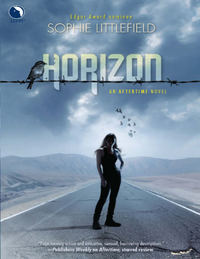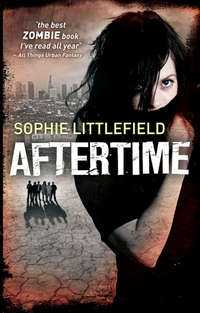
Полная версия
Rebirth
But these birds had to be two feet long. Their folded black wings would be as wide as a woman’s outstretched arms. And they were hungry. He watched one tug at an intestine, unspooling a grisly length as it stepped backward and then the others fell upon the strand and ate.
Dor picked up a stone from the street and threw it, his aim sure and deadly. The stone struck one of the birds’ heads and it fell over, its wings and claws drawn up in death. The others squawked furiously and skittered backward, flapping and jumping, one or two flying up to the second floor windows.
In the inadequate light of the moon and stars, Dor could not see much of the scene before him. He shone his flashlight beam on the bodies and wished he hadn’t.
Dor had seen even more than most. He’d trained himself never to look away, to remain dispassionate in the face of horror and ruin. He’d been a baggerman, loading bodies on trucks when there was still gas to be had; he’d joined the crew that stacked and burned the dead. By then he’d moved out of the Silva house and into a friend’s vacant cabin up in Sykes, and there were no more client accounts to play with and no reliable power for his laptop, and he needed to find a way to stay busy. When they quit collecting the dead, he was among the first raiding parties, the ones who brought supplies to hospitals and nursing homes, until the hospitals and nursing homes were nothing but mausoleums themselves.
He’d waited too long. He should have gone back to Silva while he still could, but in their last phone conversation, Jessica had told him to stay away. “Sammi’s already lost you once,” Jessica said. “She can’t lose you again. I’m telling her you’ll stay there, where you’re safe. Don’t make a liar out of me, Doran. Please.”
He’d listened to Jessica and stayed. He threw himself into helping anyone in Sykes who asked, and when the weak and vulnerable had finally all died and there was nowhere else to volunteer, he set out for San Pedro, where he’d heard about a cult taking up residence in the Miners stadium. By then he’d already decided to become a trader. He talked a guy named Nolan from an A-frame down the road into coming with him, and they loaded down a shopping cart with loot from a dozen empty cabins, liquor and candy bars and sanitary pads and antifreeze and boxes of Band-Aids. They pushed the cart the few miles to Sykes in the middle of the night, a flashlight wired to the front of the cart, though they never switched it on, preferring to take their chances in the dark. Nolan had served in the Gulf, and he knew a few tricks for sheltering, which came in handy when they got to San Pedro and spent their first few nights in a little stucco house before they found the empty lot that would become the Box. Dor still thought of Nolan every time he passed that little house.
The house where he’d come back from the creek carrying a bucket of water one morning shortly after they’d arrived and found nothing left of Nolan but the piss stain on the side of the wall where the Beaters had found him.
That was a devastating sight, worse in some ways than the many dead he later saw during scavenging missions, desiccated skeletons lying in beds and slumped at tables and many, many who still hung where they’d rigged their own death ropes. He’d found the bodies of children in their mothers’ arms with holes in their skulls, and he’d smelled every taint of rot, of bodies trapped in cars and flooded basements and burned buildings. But he’d gotten through it.
He’d seen what the Beaters did, and euthanized a dozen victims who’d been unlucky enough to live through an attack. He steeled himself, and he shot them with a steady hand and a merciful heart and still was able to eat and sleep and make love afterward.
But now he looked upon two travelers who’d made it within a few blocks of safety only to be ravaged not once but twice, the remains abandoned by the Beaters only to be fought over by a species God or Nature had been careless or indifferent enough to allow to return, and Dor wondered if the balance had finally tipped to the other side, if all their work and vigilance and will to live would mean nothing, in the end, if each day or week would bring a new horror from the skies and the water and the land, and he would die as all the others had, without his daughter, without anything, and Dor turned and vomited on the street and the birds returned to their meal of carrion.
11
CASS DRESSED RUTHIE IN RED OVERALLS MEANT for a boy, with a truck appliquéd on the front. Underneath, two shirts. Over them, a parka with a soft band of fake fur edging the hood. Mittens on a cord looped through the jacket’s sleeves, and her too-tight boots were pulled on over long socks. Ruthie was too hot, but the pack was full to bursting with clothes and supplies and there was no room to stuff anything more inside.
Dor came for them in the first light of morning, before Cass expected him and she was glad, because she left the tent without having time to look around one last time. The pack on her shoulders was heavy but she was strong, her work in the garden turning her shoulders and arms sinewy and sunbrown, and though it was a poor substitute for the long runs through the foothills she’d once loved, she ran around the perimeter of the Box in the early morning when almost no one else was awake.
She was as fit as she had ever been—sober for nearly a year, her body free of any trace of the alcohol with which she had punished herself for so long. The kaysev diet seemed to do her good. The natural immunity that was the disease’s legacy kept her eyes and sinuses clear and her digestion regular. Her hair continued to grow at an astounding rate, and her nails were strong and hard and had to be trimmed constantly. Ruthie, too, was thriving, despite her silence—she’d grown an inch according to the pencil line Cass had drawn at the start of October on the bookshelf, and her molars had come in. Despite the occasionally restless night, Ruthie ate well and played energetically and these days she smiled more than she frowned.
When the curtains over the door lifted and Dor stood in the doorway silhouetted against the pale light of dawn, Cass stood, ready to go. Ruthie stared up at Dor with her usual frank appraisal. Despite the cold, Dor was dressed only in a flannel shirt over a T-shirt, and he held his parka over his arm. He had not cut his hair since Cass had first seen him, and it had grown in streaked with gray among the black and now it grazed his shoulders, the ends ragged and wet from his shower. The half dozen silver loops piercing the cartilage of his ears glinted in the light of her Coleman lantern, the use of which—with its hoarded batteries—was a special-day indulgence.
“Show me your blade,” Dor commanded in a voice rusty from sleep, regarding her with an expression that suggested he was still making his mind up about the wisdom of bringing her along.
Cass’s hand went automatically to her belt, which concealed a Bowen narrow double-edged blade. It too had been a gift from Smoke, traded for in a good-natured bidding war with a few of the guards. She held it out by the silver handle, its smooth curve familiar in her hand.
Dor nodded. “That will do.”
Cass replaced it. “What if it hadn’t?” she asked. “What if you didn’t like it?”
Dor bent on one knee, and she couldn’t read his expression. He held out a hand to Ruthie, and to Cass’s surprise, her daughter slipped her hand into his and followed him from the tent.
“I would have given you mine.”
Joaquin, the early-shift guard, mumbled a sleepy greeting and opened the gate for Dor, looking at Cass and Ruthie curiously but asking no questions. They’d encountered no one else on the walk from Cass’s tent, though she knew that outside the Box two more guards patrolled, on the lookout for Beaters roused by the dawn’s light. Somewhere in the cheap cots that lined the front wall, someone moaned in their sleep, visited by some terror or regret as the buzz from the night before wore off. Elsewhere someone coughed. These were sounds one grew used to, living in quarters as close as these.
Cass had not spent a night outside the Box since escaping from the Convent with Ruthie. She stared up at the darkened stadium across the street, a string of Christmas lights drooping from the upper tier the only illumination other than a faint glow from within. Somewhere inside, in the skyboxes where the highest members of the Order lived, Mother Cora slept the sound sleep of the devout, of someone confident that there was not only a higher power but a plan in which she played a vital role. Even her disastrous mistakes could not shake her convictions: Mother Cora had been wrong about the Beaters. She had been convinced they could be healed by prayer, a theological misjudgment that came with a very high price.
Convent trade with the Box had been sharply curtailed since Cass left, with only a few furtive exchanges for cigarettes and the occasional cheap bottle of home brew. No new acolytes had been accepted; hopeful travelers were turned away at the heavily guarded and shuttered entrance—and no one had left—or been allowed to leave. Dor seemed indifferent; he had no special contempt for the Order, but he didn’t seem inclined to worry about their future, either, and his employees took their cues from him in this as in so many other things.
Cass turned away from the stadium; there was nothing there to mourn or miss. The flame of zealotry had burned out, and presumably their only prayer now was survival, as it was everywhere.
“How far?”
“Corner of Third and Dubost. Think she’ll let me carry her?”
Cass had been about to pick Ruthie up herself when Dor swung her daughter up and over his head, resting her over his shoulders as though she weighed nothing. Ruthie’s eyes widened with surprise and she dug her fingers into Dor’s hair, holding on tightly. Dor winced but didn’t complain, even as she pulled tighter.
Ruthie looked for a moment as though she might cry, but she set her mouth in a tight line and no sound escaped her. Dor walked slowly, taking care not to bounce her and after a moment she relaxed. She watched the scenery go by, her head turning this way and that, and Cass remembered that Ruthie had seen very little of the world outside. Once she relaxed and stopped gripping his hair so tightly, Dor closed his big hands around her chubby calves and moved a little faster.
Cass tried not to stare at them. Smoke, who had no children of his own, no nieces or nephews, who had lived a businessman’s life of motels and airports and restaurant meals, had been finding his way slowly around Ruthie. Cass knew that he cared about her daughter, but he treated Ruthie with great care as though she was fragile, as though he would inadvertently, permanently damage her. He never carried her, though he would wait patiently for her when they walked through the Box. He played with her, setting up elaborate stage sets with the many toys the raiders brought back for her, but he never roughhoused. There was something about Ruthie’s silence that made him treat her with exaggerated care, as though muteness was evidence of delicacy or a tendency to injury, and when they played together he chose her Playmobil characters or crayons or board books. Ruthie never seemed to mind. She had become a serious child who did not seem to miss running and tumbling and climbing trees.
But Dor handled her differently. Dor did not treat her as if she were breakable; he was easy with her. Of course, he had experience. Sammi had been little once.
Cass tried to imagine Dor with Sammi, long ago. She guessed he was far from a perfect father, given his brooding intensity, the long hours he now spent locked in his trailer and his need for seclusion. But he was more than she had ever been able to provide for Ruthie, who could never know her father because Cass had no idea who he was. Just one of the many drunk-blurred strangers from one of the stumble-home nights of those dark days. Not father material—certainly not father material; he wasn’t even real to Cass, who knew intellectually that he probably wasn’t even alive anymore, and couldn’t bring herself to care.
She wondered what Dor had been like back then, when Sammi was little. The tattoos, the earrings, the hardcore training regimen that left him hard-muscled and lean—these were all things acquired Aftertime, as was his facility with weapons and combat. That much she knew from Smoke. But from watching him she had learned more: he adapted to his surroundings with ease, if not passion. He was sensitive to the smallest changes in supply, in demand. He applied this to the commerce of human temperament as well as to goods and services. Running the Box required nimble reflexes, unflinching readiness, cruel precision. Shows of strength and, occasionally, violence.
Before, Dor had made his living on the internet and Cass wondered if Dor had once looked like every other Silicon Valley bean shuffler, soft in the middle and pale from too many indoor hours. It wasn’t an image easily reconciled with the man she walked beside now.
After a couple of blocks Cass saw a light ahead, a flashlight casting a cone of dirty yellow onto the pavement. When they drew closer she saw that it was Joe, Smoke’s sparring partner, and that behind him was a Jeep Wrangler, canvas missing, roll bars rusty. It was far from new and it was not clean, and it had a long dent creasing the driver’s side, but it had not been there the last time Cass passed this street corner and she knew it was to be their ride to Colima.
A car. She drew a little closer to Dor, her boots crushing gravel. When was the last time she’d ridden in a car? Smoke and she had taken a motorcycle the forty miles from Silva to San Pedro, but before that it had been since the Siege. Even before the holiday biostrikes, riots had broken out in cities all across America; driving anywhere close to the center of towns, or past utilities or government buildings had been a calculated risk. The last of the long-haul truckers to attempt their routes found themselves hijacked by the desperate, organized highway pirates and sometimes just by bands of suburban dads made bold by their numbers and their children’s complaints of hunger. So the long-haul truckers became hoarders. Schools had mostly closed before then anyway; there were no soccer games for the soccer moms to drive to. Store shelves were sparse; bands stopped touring; movie theaters had nothing new to show and mall parking lots were empty.
Once buildings started burning, and the bodies of unlucky elected officials were found nailed to city halls and hung from highway overpasses, the network of roads and highways was stricken with the kind of chaos it was impossible to recover from. Some tried to flee the cities; others packed everything they could into their cars and tried to get to urban centers, where they figured the food stores would be distributed by…someone. The result was gridlock, accidents, blocked roads; gas stations ran out of fuel; drivers shot each other; cars were jacked by roving bands of teenagers. Things stopped moving.
“No car seat,” Dor said, swinging Ruthie to the ground. “Sorry.” He took off his pack, opened the passenger door and set it on the floor under the backseat, then held out his hand for Cass’s. She handed it over and circled the Jeep, peering into the cargo area.
There was a cardboard box, labeled Dole Certified Organic Bananas, butting up against six one-gallon jugs filled with water and three two-gallon drums. Probably gasoline. Inside the box were plastic bags of food: roasted kaysev beans and hard cakes, cold fried rabbit, fringe-topped celery root from her own garden, harvested before its time and nestled in rags. She felt her face grow warm; Dor must have picked it in the predawn hours; it was undisturbed the day before when she made a last check on the garden.
Конец ознакомительного фрагмента.
Текст предоставлен ООО «ЛитРес».
Прочитайте эту книгу целиком, купив полную легальную версию на ЛитРес.
Безопасно оплатить книгу можно банковской картой Visa, MasterCard, Maestro, со счета мобильного телефона, с платежного терминала, в салоне МТС или Связной, через PayPal, WebMoney, Яндекс.Деньги, QIWI Кошелек, бонусными картами или другим удобным Вам способом.






